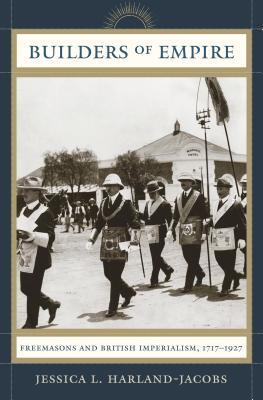
Book
Builders of Empire: Freemasons and British Imperialism, 1717-1927
(Write a Review)
Paperback
$55.00
The organization formally emerged in 1717 as a fraternity identified with the ideals of Enlightenment cosmopolitanism, such as universal brotherhood, sociability, tolerance, and benevolence. As Freemasonry spread to Europe, the Americas, Asia, Australasia, and Africa, the group's claims of cosmopolitan brotherhood were put to the test. Harland-Jacobs examines the brotherhood's role in diverse colonial settings and the impact of the empire on the brotherhood; in the process, she addresses issues of globalization, supranational identities, imperial power, fraternalism, and masculinity. By tracking an important, identifiable institution across the wide chronological and geographical expanse of the British Empire, Builders of Empire makes a significant contribution to transnational history as well as the history of the Freemasons and imperial Britain.
The organization formally emerged in 1717 as a fraternity identified with the ideals of Enlightenment cosmopolitanism, such as universal brotherhood, sociability, tolerance, and benevolence. As Freemasonry spread to Europe, the Americas, Asia, Australasia, and Africa, the group's claims of cosmopolitan brotherhood were put to the test. Harland-Jacobs examines the brotherhood's role in diverse colonial settings and the impact of the empire on the brotherhood; in the process, she addresses issues of globalization, supranational identities, imperial power, fraternalism, and masculinity. By tracking an important, identifiable institution across the wide chronological and geographical expanse of the British Empire, Builders of Empire makes a significant contribution to transnational history as well as the history of the Freemasons and imperial Britain.
Paperback
$55.00